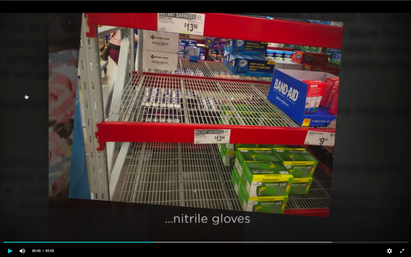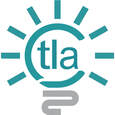|
Do you ever wonder if your students are paying attention to your Announcements? Are they reading through an entire assignment, or just skimming it? Do you have some items in your course modules that you suspect they skip altogether? One way to check, to reward students who are thorough, or to give all students the incentive to pay stricter attention to the course material, is the idea of using Easter eggs. For example, I quite frankly despair of having all of my students read the weekly Announcement in my Canvas course. I don’t know why, because the Announcement always includes a summary of what we did in class, links to the handouts used in class, any upcoming homework, and what to expect in the next class – I would think that these would be important enough for students to check in regularly, but it doesn’t seem to be the case. So once or twice a semester, I plant a random (usually not even content-related) Announcement with a bonus point opportunity. Because I am just checking to see who has read the Announcement, it’s something easy like:
 This semester, right before Spring Break, I posted an Announcement asking students to keep an eye out and send me pictures of anything that said "Coronavirus Economy" to them, along with the date/place, and why it caught their eye. I then used the student photos and comments to create an Animoto video. You could also give out some low-stakes information eggs, such as
What are some other ways to use Easter eggs?
Here's an idea shared last Spring by Dr. Alisa Beyer, Psychology Faculty: Try hiding your own Easter Egg - it's easy! Moreover, if your class is just resuming this week, it may be a way to reinforce the desired habits from your students in this Brave New World of Remote Learning (it's never a surprise that the Psychology faculty like to use this technique, because a Psych major friend years ago told me that "Intermittent Reinforcement" is the most powerful way to develop the desired behaviors)!! And if you have questions or need assistance regarding Teaching, Learning and/or Assessment, your friendly neighborhood CTLA is (as always) happy to help. These days that means remote assistance, but we're still here for you! Don't forget that you can use this link to Submit a Request for Assistance from the CTLA:
https://ctla.cgc.edu/help.html HAPPY TUESDAY, EVERYONE!
4 Comments
Scott Adamson
4/7/2020 01:25:15 pm
Next week, my MAT276 (differential equations) students will be taking a "check your understanding" quiz on Canvas.
Reply
Mary McGlasson
4/7/2020 01:29:34 pm
MATH HUMOR!!! It warms my geeky little undergrad-math-major heart... I can see this as a good strategy for getting students to complete a survey or an ungraded quiz, too!
Reply
Tom Shoemaker
4/14/2020 02:58:50 pm
I am usually over at MCC, but this semester I am teaching one face-to-face class at CGCC that has transitioned. I loved this email. I have been using "Easter eggs" for several semesters in my online class, and although some students grumble, it seems to work well. I offer during each of the modules three to four mini-lectures, each prefaced with a question like "How old was I when I made this video?" or "I mentioned four Hindu gods. Which of these was NOT one of them?"
Reply
Mary McGlasson
4/14/2020 05:00:10 pm
Tom,
Reply
Your comment will be posted after it is approved.
Leave a Reply. |
Categories
All
Author
Awesome people who want to help you do awesome stuff in the classroom! Join the conversation here or in our Facebook Group: CGCC Center for Teaching, Learning, and Assessment Archives
October 2023
|
TOPICS |
SUPPORT HoursMonday - Thursday
8am - 5pm Friday 8am - 4pm |
|
© Chandler-Gilbert Community College, 2020.





 RSS Feed
RSS Feed
